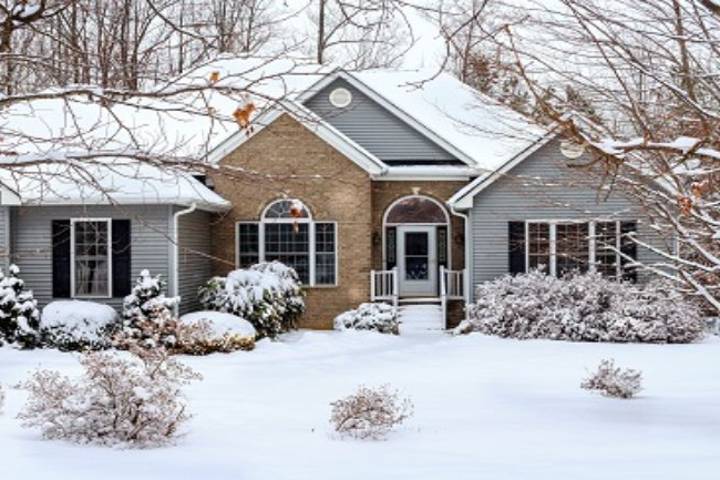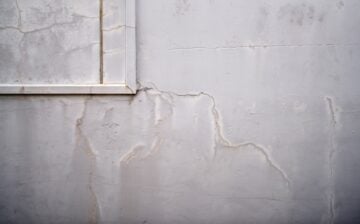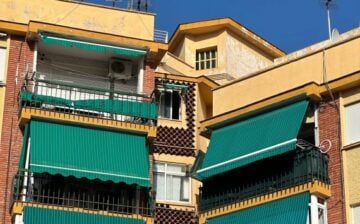Most homeowners focus on their homes when the weather cools off and winter arrives. However, winter does not mean that your housework is done until spring. In actuality, skipping important seasonal maintenance can result in some of the most expensive and avoidable home repairs, such as frozen pipes, fire hazards, and roof damage.
Here are some crucial winter maintenance chores you shouldn’t overlook if you want to safeguard your investment and maintain the functionality of your house, regardless of your level of experience as a property caretaker.
Cleaning your gutters is your first line of defense
Even though the leaves will have long since fallen by winter, your gutters are still vulnerable. Gutter blockages can quickly turn into frozen gutters, creating ice dams that harm siding, soffits, and roofing. Water backs up and may seep into your attic or walls when melted snow and ice cannot be adequately drained.
Gutter Checklist for Winter:
- Clear away the roof debris, twigs, and leaves.
- Make sure the downspouts are clear of obstructions and flowing away from the foundation.
- Install gutter guards if accumulation occurs frequently.
Additionally, clean gutters are essential if you intend to use holiday lighting to decorate your house. To prevent slips and accidents, make sure your railings, ladders, and steps are secure and your gutters are clear before hanging festive lights. For a safer and hassle-free approach, consider professional Greenville holiday lights installation services that handle it all—minus the risk.
2. Insulation: Keep the heat (and money) contained
A home with inadequate insulation will have lower indoor temperatures and higher heating costs. Insulation does more than just keep you warm; it also keeps pipes from freezing and eases the burden on your air conditioning system.
Important Things to Look for:
- In attics, search for openings or slender areas where warm air can escape.
- Crawl spaces and basements are frequent places for drafts to enter.
- Use caulk or weatherstripping around windows and doors as necessary.
Over time, even tiny drafts can release a startling amount of heat. Spend a weekend looking over these areas, or hire a home energy auditor to do a thorough assessment.
3. Replace HVAC Filters to Make Breathing Easier
The air you breathe is continuously recycled if you spend more time indoors during the winter with the windows closed. If your furnace or heating system is running at full capacity, clogged filters may affect the air’s quality and efficiency.
Tips for Maintaining Filters:
- Changing disposable filters every 30 to 60 days is advised.
- Clean the washable filters once a month if you’re using them.
- For improved allergen control, think about switching to a HEPA filter.
Filters that are dirty cause your system to work harder, which raises energy costs and may shorten the unit’s lifespan. One of the easiest ways to maintain a comfortable home and healthy air is with a clean filter.
4. Inspection of the Attic and Roof
Variations in temperature, snow, and ice can highlight roof flaws that you were unaware of during the summer. It may not seem urgent to fix a minor crack or lifted shingle—until moisture seeps in and damages the insulation, rot, or mold.
What to Search for:
- Shingles that are missing or broken
- Fascia boards or drooping gutters
- Attic moisture indicators, such as condensation or frost on the rafters
- Ice dams developing at the edges of roofs
A roof rake can assist in clearing accumulation before it becomes a weight problem if you live in a region with a lot of snow. Additionally, make sure there is enough attic ventilation to avoid condensation.
5. Safety of Chimneys and Fireplaces
Nothing compares to curling up with a roaring fire, but only if your fireplace is safe and clean. One of the main causes of house fires in the winter is creosote accumulation inside chimneys.
Prior to lighting your fireplace, make a list:
- Every year, have your chimney inspected and swept by a professional.
- To keep animals and debris out, install a chimney cap.
- Put a screen over your fireplace to stop sparks from flying out.
- To reduce creosote accumulation, only burn seasoned hardwood.
Inspecting gas fireplaces for adequate ventilation and operational carbon monoxide detectors in the vicinity is also necessary.
6. Protect Your Plumbing by Freeze-Proofing Your Pipes
One of the most costly and damaging home emergencies of the winter is frozen pipes. Water expands when it freezes, causing pipes to burst, flooding your walls or basement and necessitating costly repairs.
Preventive Measures:
- Particularly in crawl spaces, basements, and garages, insulate exposed pipes.
- To promote the circulation of warm air, keep the cabinets beneath sinks open.
- Let the faucets drip, especially on chilly evenings.
- Be aware of the location of your water shut-off valve in case of an emergency.
Consider having someone check your house while you’re away and setting your thermostat to no lower than 55°F (13°C) if you’re going to be away over the holidays.
7. Holiday decorations and lights on the outside
Because winter days are shorter, outdoor lighting becomes more crucial for visibility and a sense of celebration. Spend some time examining the outside of your house before putting up inflatables or holiday lights.
Quick Advice:
- Ensure that railings, stairs, and walkways are safe and non-slip.
- Make use of extension cords and lights with an outdoor rating.
- Avoid overloading circuits and leaving lights on unattended at night.
For your holiday décor, such as the installation of Greenville holiday lights, hiring experts guarantees both a polished appearance and safety. Additionally, they frequently provide takedown services at the end of the season, which will save you time and effort.
8. Carbon Monoxide and Smoke Detectors
Winter is a crucial time to check that your safety detectors are functioning properly because of the use of furnaces, space heaters, and fireplaces.
Take the following action:
- Every month, test alarms
- At least once a year, or whenever the time changes, change the batteries.
- Place detectors throughout the house, paying particular attention to the areas around bedrooms.
Carbon monoxide has no smell and is lethal. In winter, a functional CO detector is as crucial as smoke alarms.
9. Dryer vents that are clean
In winter, when ventilation may be limited and static can rise, dryer fires are more frequent. Because it is extremely flammable, lint accumulation inside vents should be routinely cleared out.
What to Do:
- Following each load, clean the lint trap.
- Examine the vent hose and clear any accumulated lint.
- Every year, have your entire venting system cleaned by a professional.
This minor upkeep can prolong the life of your dryer and reduce the risk of a major fire.
10. Prepare for Power Outages and Storms
Winter storms can strike at any time. When the power goes out or the roads close, having a basic supply list and emergency plan on hand will reduce anxiety.
Essentials for a Winter Emergency Kit:
- Flashlights with extra batteries
- Portable chargers and power banks
- Bottled water and non-perishable food
- Warm blankets and a backup heat source (e.g., a propane heater)
- Sand, salt, or a shovel for driveways and walkways
Final Thoughts
Winter maintenance is essential to keeping your house safe, functional, and pleasurable throughout the season—it’s not just about surviving the cold. You can prevent expensive repairs and preserve the comfort of your living area by taking care of these easy yet crucial tasks.
Remember to clean your gutters first, inspect your railings again, and think about hiring professionals for a beautiful and safe Greenville holiday lights installation if you’re going to light up your house this season.
We hope you found this blog post on Don’t Ignore Seasonal Home Maintenance During the Winter, useful. Be sure to check out our post on How to Create a Home Maintenance Schedule That Saves You Money for more great tips!
Have Experience in the Moving Industry? Want an Additional Income Stream? Work With All Around Moving!
Partner with All Around Moving and we’ll help you profit. Click here to learn more.






